This post may contain affiliate links, which means I get a small percentage of the sale at no extra cost to you. I only recommend items I love and have had a positive experience with. Thank you!
To make sure the Berkey Water filter worked like I hoped it did, I sent my water into an independent lab for testing. Now I am sharing my Berkey Water filter test results and what I now think of the Berkey after seeing them.
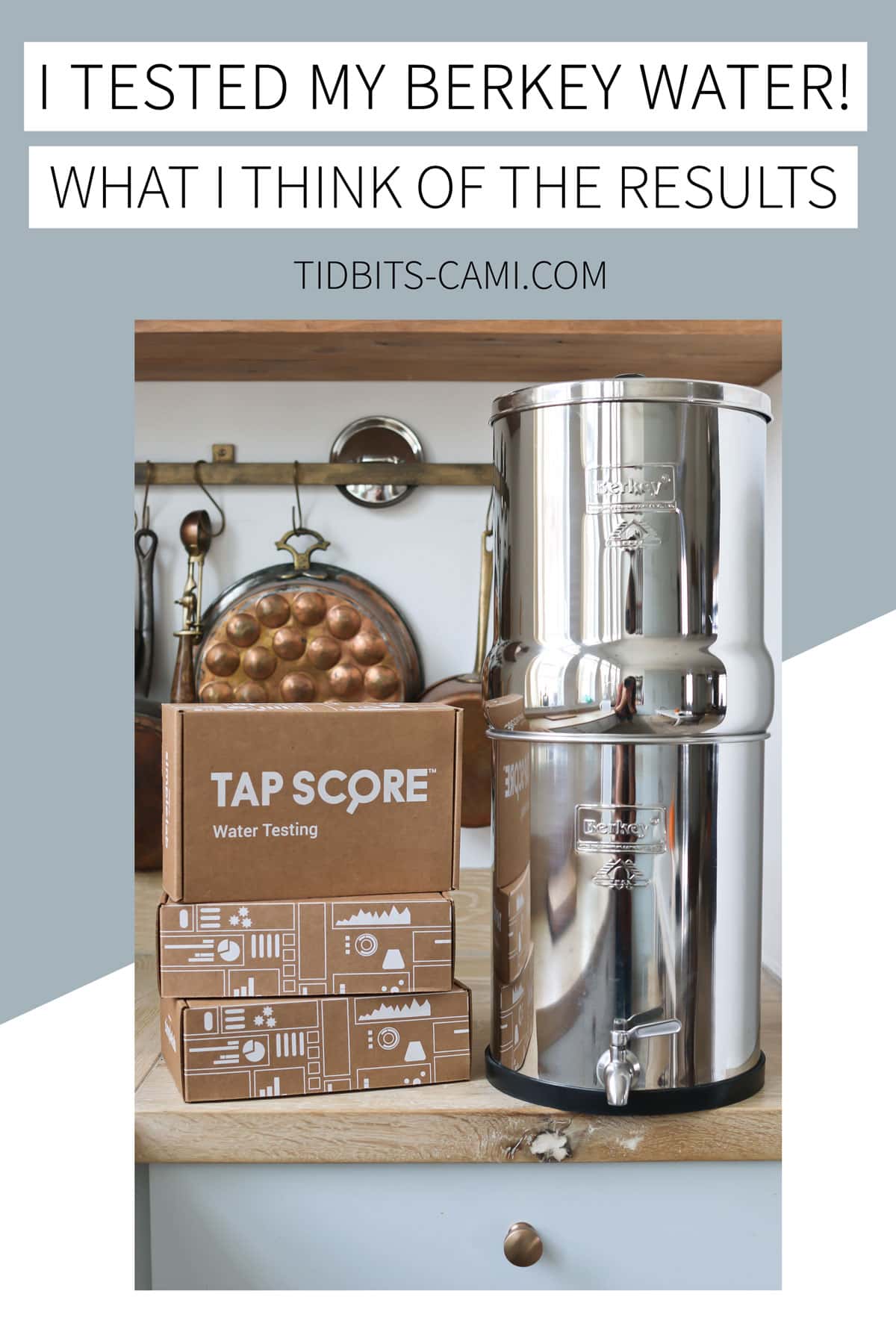
Alright, you’ve heard me sing my praises for the Berkey Water Filter, but after receiving some opinionated comments about the Berkey on my videos, I decided I needed to know.
I sent 3 samples out to an independent laboratory to test my water.
- Directly from the wellhead
- From the kitchen faucet after being filtered in our whole house filtration system
- From the Berkey water filter
I’m going to be completely transparent and share the process, my results and finally what I think about the Berkey after seeing it all.
VIDEO ON TESTING MY BERKEY WATER
Why Did I Test My Water?
Seeing slightly negative comments on my Berkey Videos that I’ve done, really caused me to think.
Having my family drink healthy and clean water is super important to me, especially after all I’ve learned and researched about what is potentially harmful to our health in our water sources.
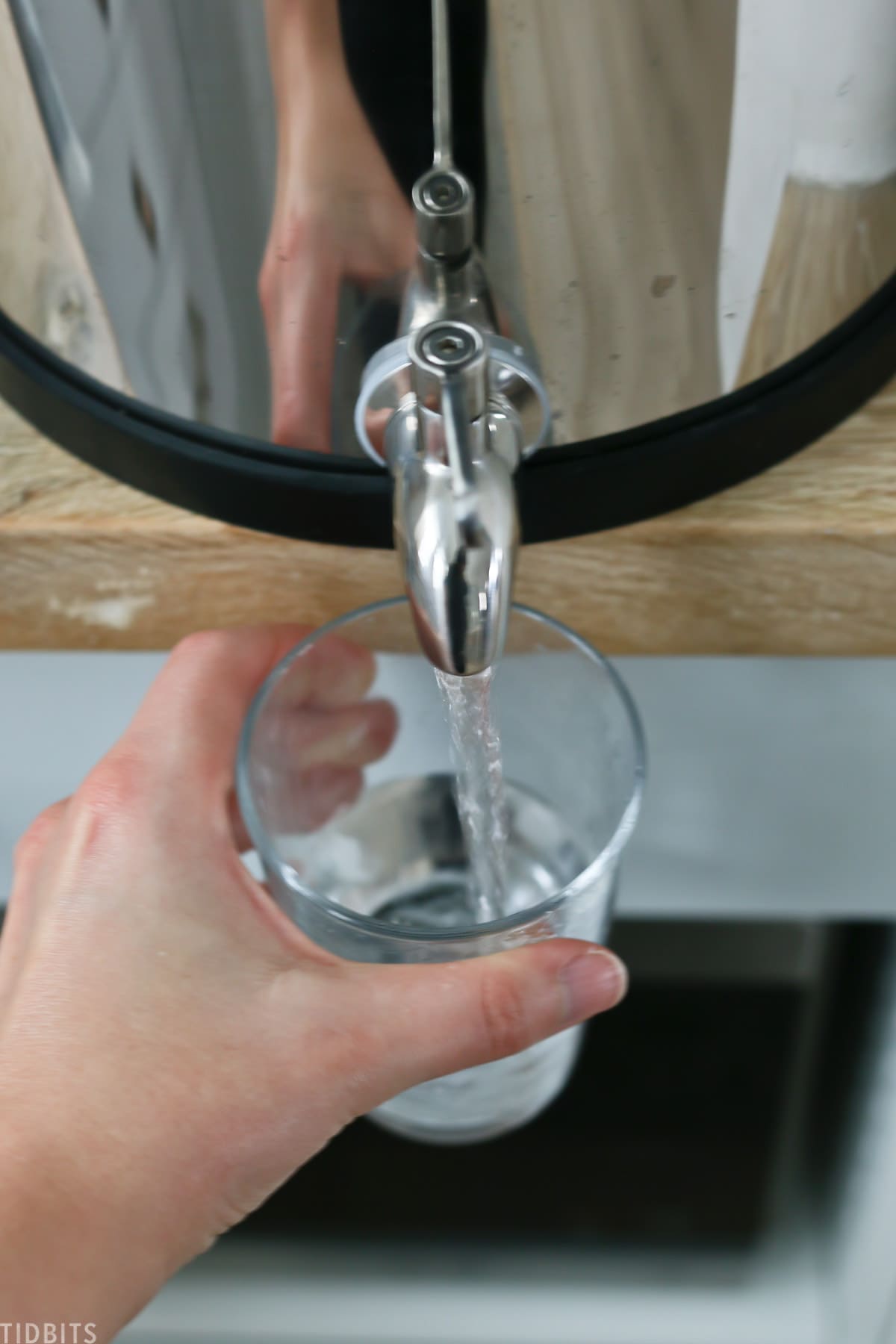
But I didn’t want to live with a sense of false security feeling like the Berkey Water Filter was the answer to all our problems and delivered my family wonderfully clean water – if in fact – it wasn’t.
Additionally, I felt a bit of a moral obligation to actually know if I was recommending something to you that was or wasn’t as valuable as I believed it to be.
So, I decided to do some homework and truly find out for myself what was in our water and just avoid all the controversial articles that are readily available about water filters online.
I hope this is valuable to you, and definitely stick around for my results and humble opinion after knowing what I now know.
ABOUT THE COMPANY I USED TO TEST MY WATER
First, I want to be very transparent about the company that I decided to use for testing my water. I learned about a few options but decided to reach out to a company called Tap Score to help me with this.
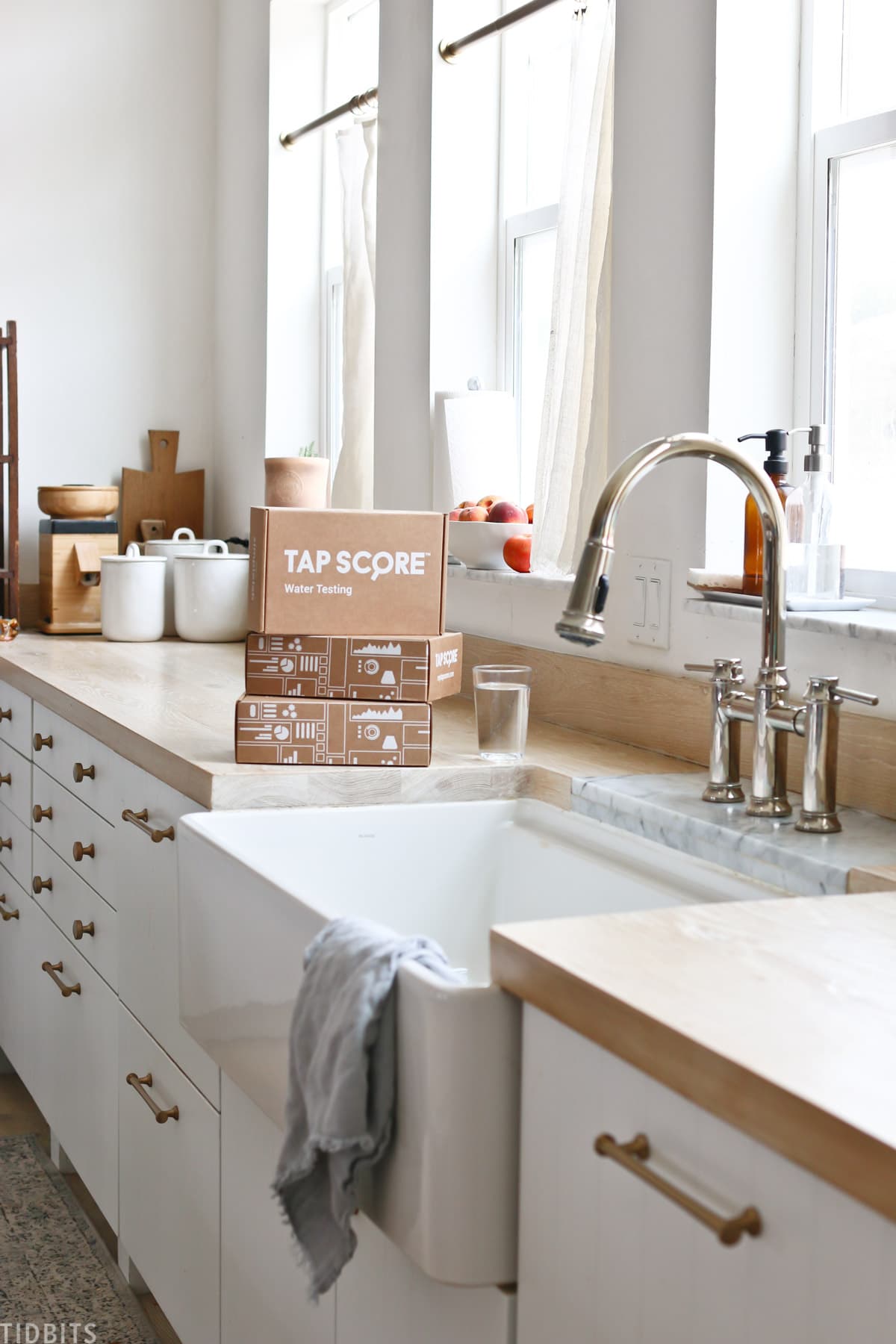
I told them about our water situation which you’ll see more of as I show you my testing process, but they were super intrigued themselves since our water situation is fairly unique.
This post is not sponsored by Berkey or Tap Score, but after learning what I wanted to do, Tap Score actually offered to send me 3 tests so I could test from each source and better understand what was going on.
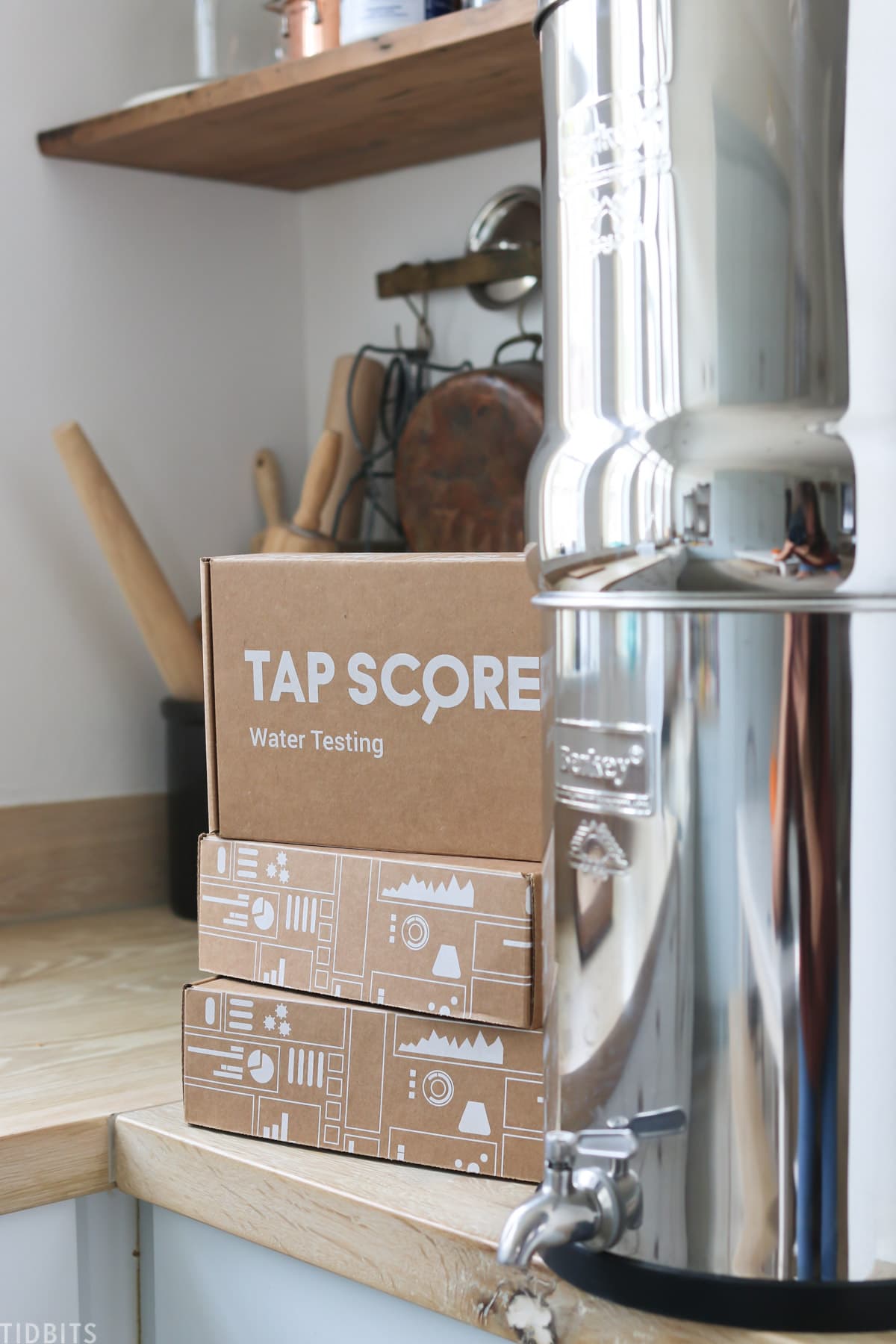
They were amazing to jump on to zoom calls with me and prepare me for the process and discuss the results. I’m still not a water pro, but I understand it all so much better after having their help. They have amazing customer service!
What I think is really awesome about Tap Score is that they are actually like a middle man – so to speak.
So they send the water to independent certified laboratories, so they don’t actually test themselves and don’t benefit at all from what your results do or do not say.
They have just provided the amazing testing kits, the learning system and their knowledge to help us know how to test our water and then they decipher the complicated lab results and put them in layman’s terms, basically, and help us understand them.
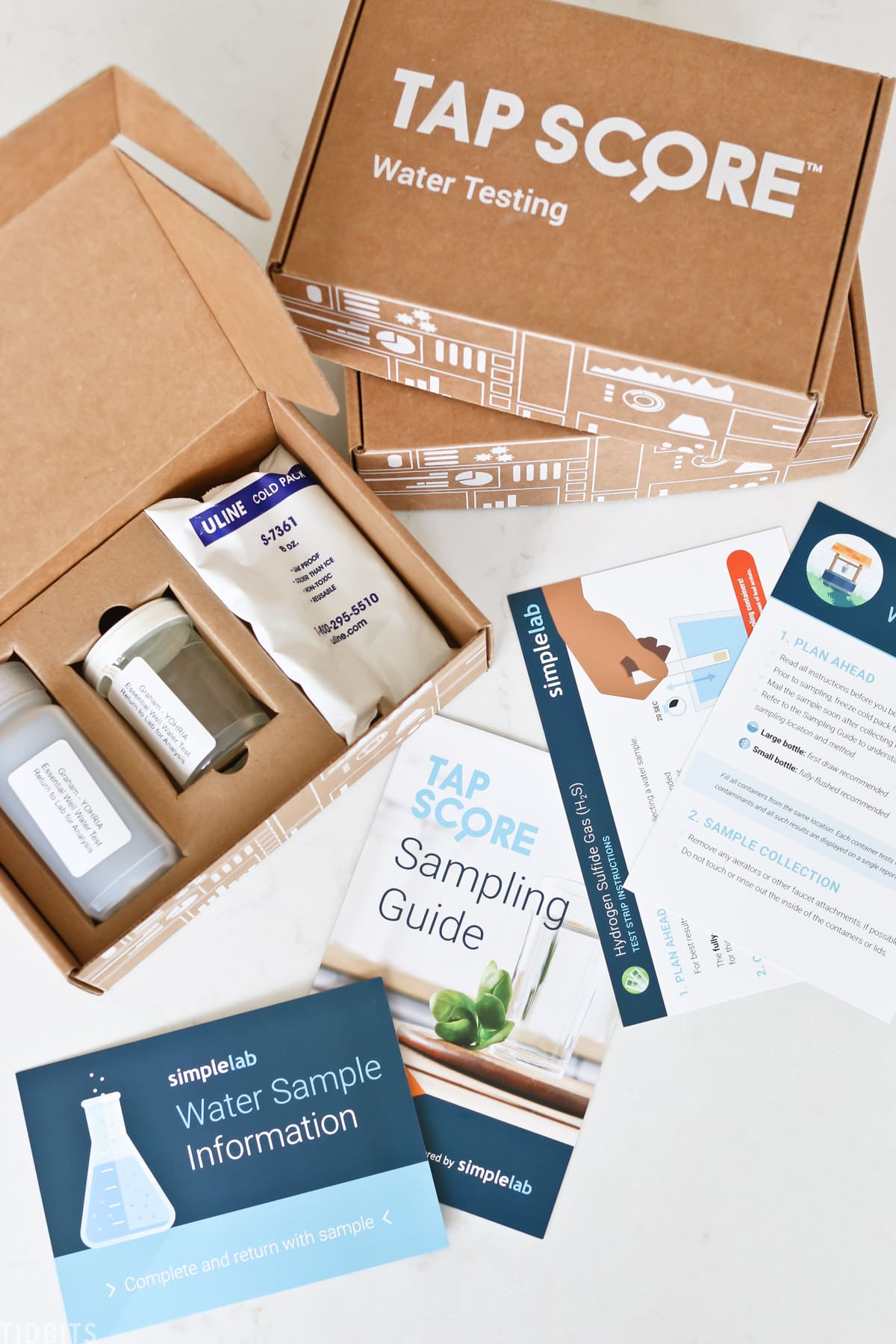
So it is peace of mind to me that I picked a company that is not profiting from any filtration product or swaying the results. I think they are amazing at helping us understand our water, and I highly highly recommend looking into them if you want to test your water as well.
Can You Test Your Water for Free?
I will say, it is always an option to get your water tested for free, or for a very minimal charge through the county you live in – I believe. I grew up always helping my mom test our well water frequently and turning it into the county.
I believe those tests are a lot more basic and don’t test quite as much, but it can give you a great baseline to go off of to see if you need to do further in depth testing. I highly recommend looking into those services for your area as well.
What Does Tap Score Test For?
Tap Score has a lot of testing options. You can click what source you have, whether that is a private well or city water, then select a level of testing based on what you are concerned about or what you want to test for. I opted to take the essentials water test for all 3 sources.
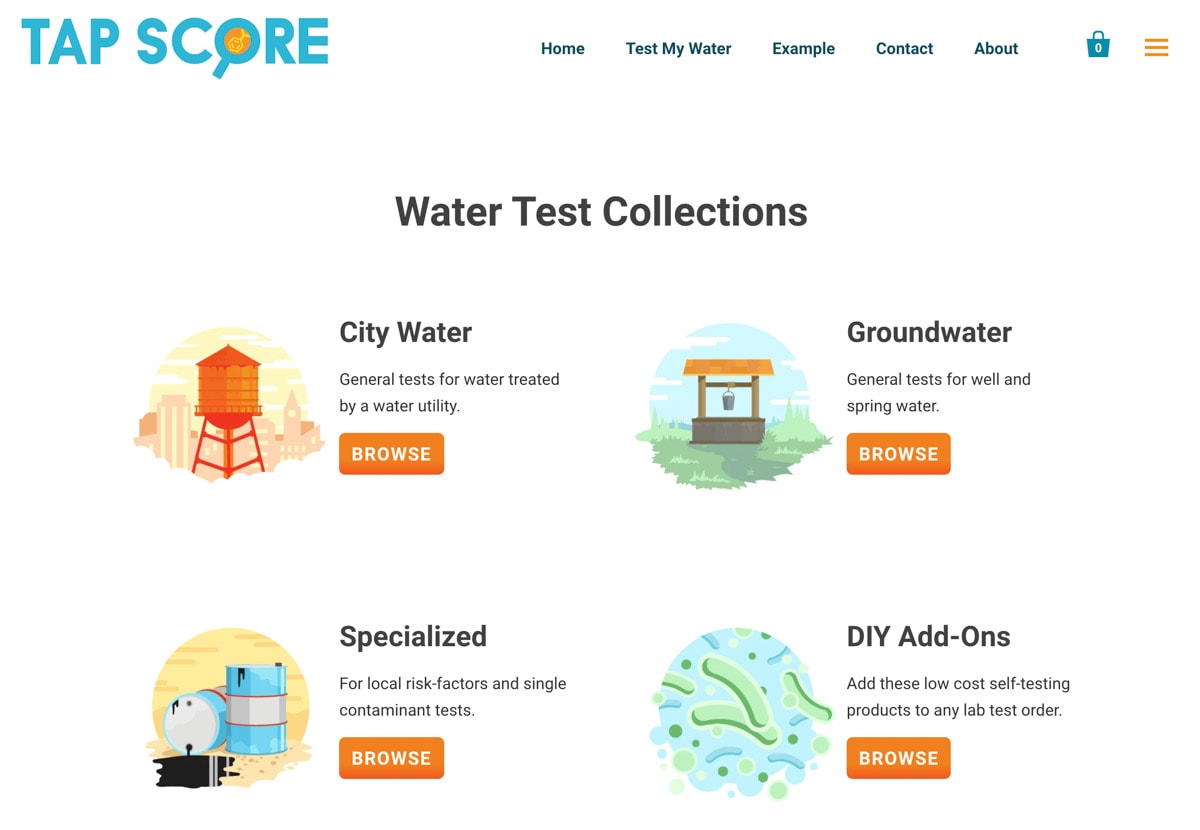
I like that you can get very specific or general. If you are concerned about VOC’s, mold, radiation, pesticides and all sorts of scary things that might be a concern in your area – you can select just those tests.
You could also ask them something like, we have 100 year old pipes or live in New York – what should we test for? That might be helpful to start there.
The Process for Testing Our Water
I first wanted to know what was in our well water directly from the wellhead. We knew right away after digging our well that our water had high iron content that affected the taste and smell and we had to install a whole house green sand water filtration system.
And we were pretty sure we had very hard water so we installed a water softener. But I wanted to actually know if it was dangerous to our health and if the whole house filtration system was actually doing what we were told it would do after paying for a fairly expensive filter.
TESTING THE WELLHEAD WATER
Using the instructions in the Tap Score kit, I pulled the water from the well in the morning collecting 2 samples.
-From the first draw before any taps had run.
-Then for the second bottle I collected the water sample after it had run for 5 minutes.
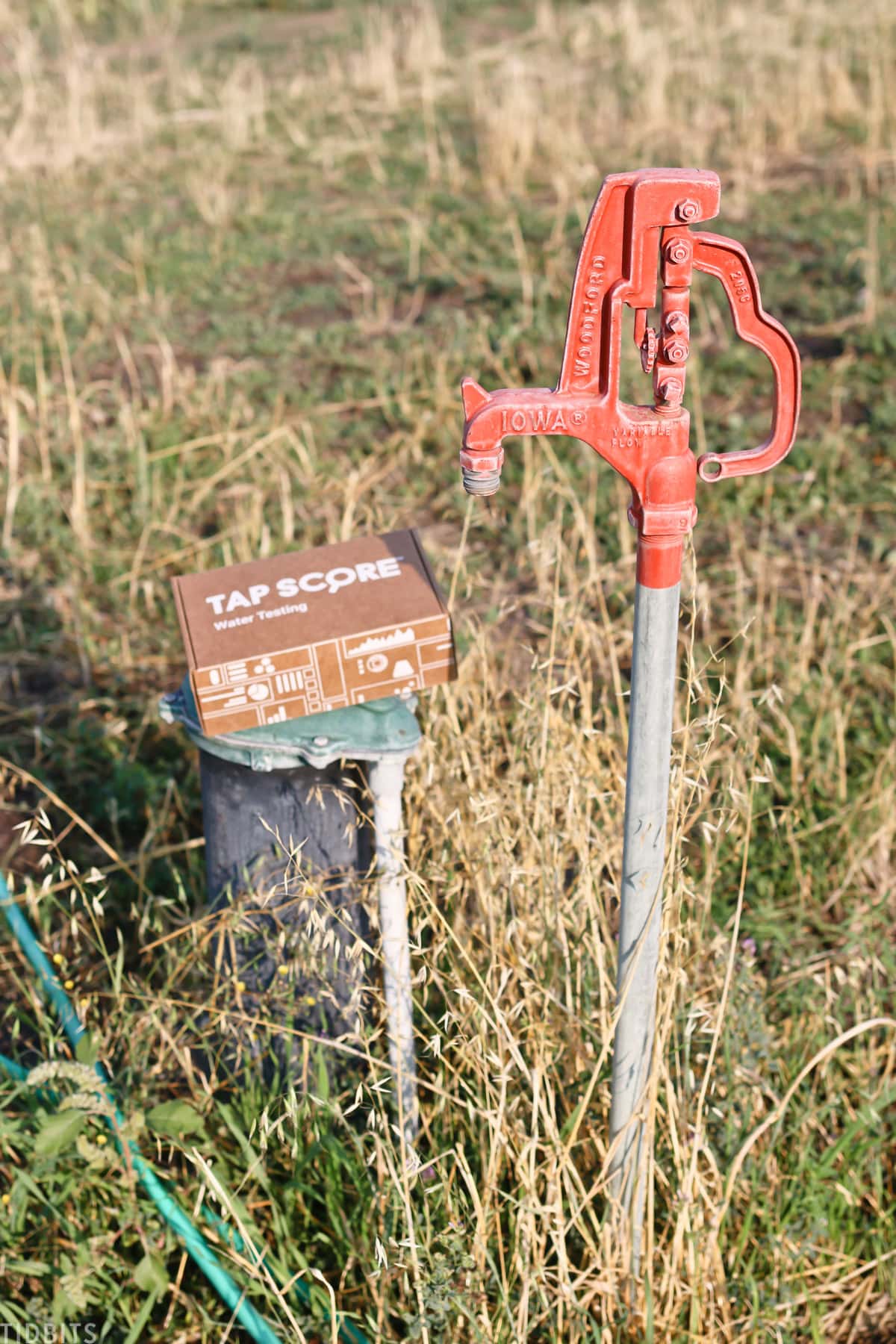
I learned that the first draw is so they can test if your pipes are contaminating the water, and the fully flushed draw is to discover if the water source itself is contaminated.
TESTING THE KITCHEN FAUCET WATER
The second source I wanted to draw from was our kitchen faucet. We don’t always drink or cook from the Berkey and quite frankly – I wanted to know what the whole house filtration process was doing and if we even needed the 3rd filtration – which is the Berkey.
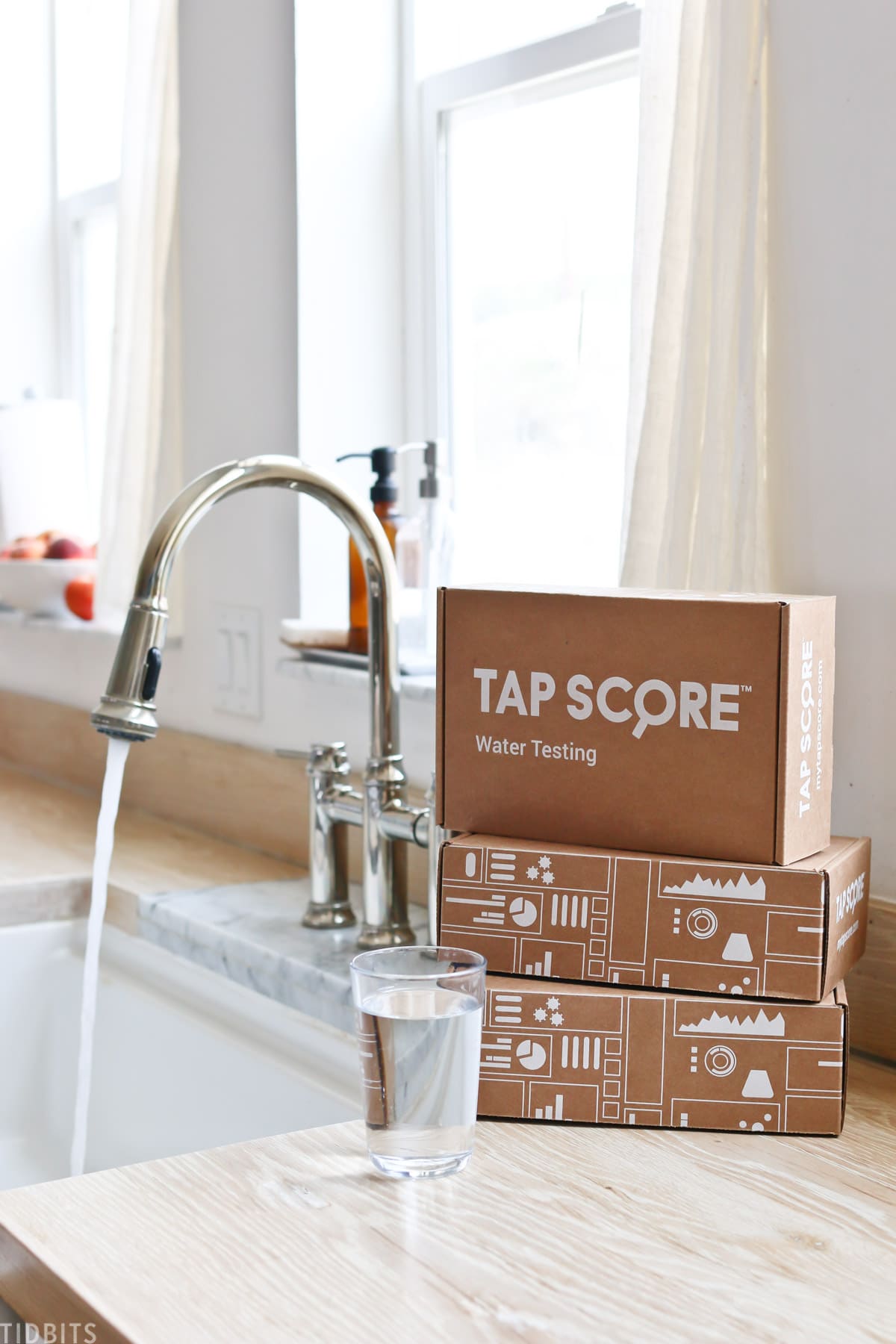
So I grabbed the needed samples from the kitchen faucet, which is essentially the same water that goes through the house and into the bathroom faucets as well.
TESTING THE BERKEY WATER
Lastly, I pulled the samples from the Berkey in the exact same manner in which we use it to fill our cups and drink from.
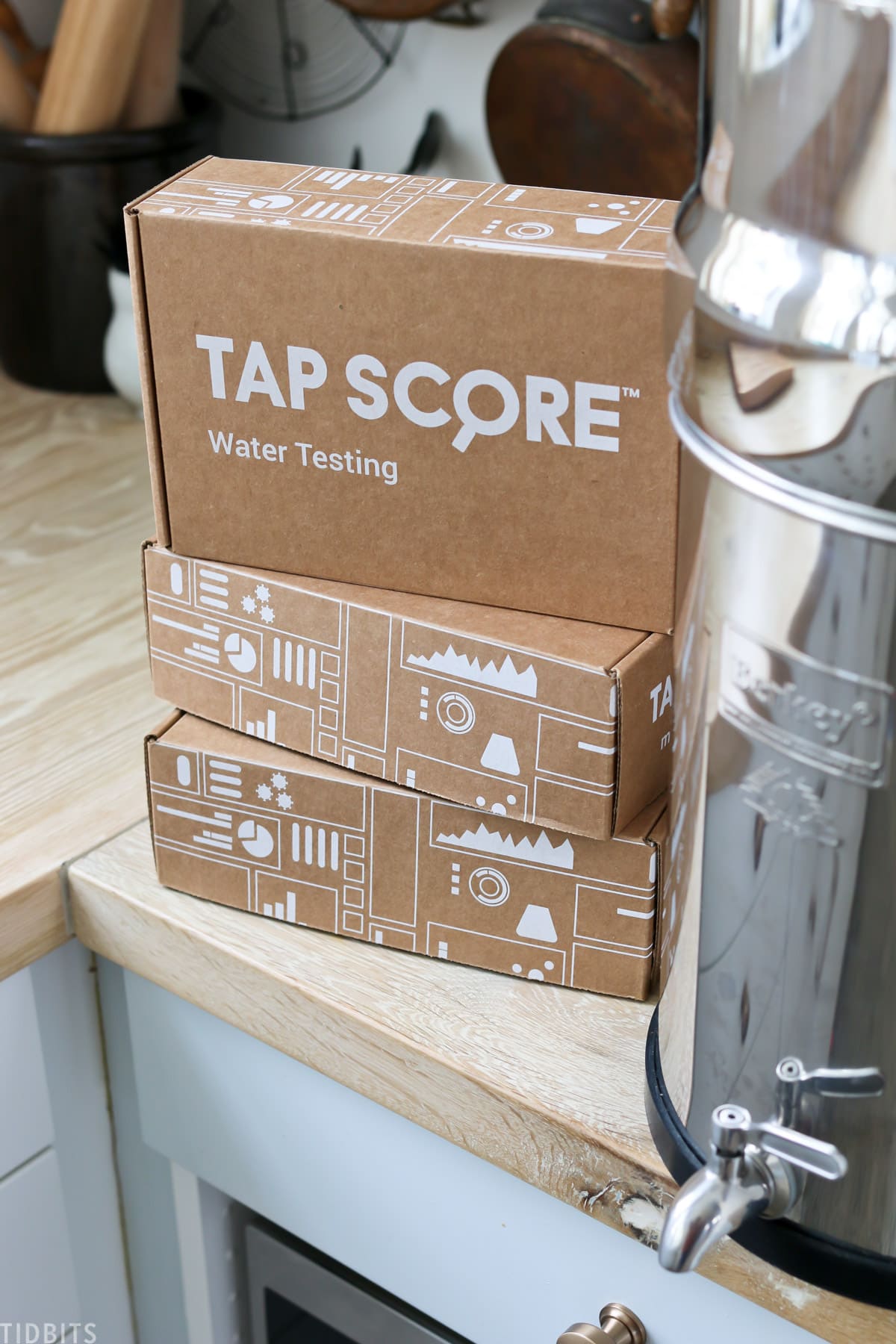
Next I filled out the card with all my info, set up my online account and I went to the post office and sent them in with the prepaid label, and then I waited a couple weeks for the results.
ALL RESULTS FROM OUR INDEPENDENT LABORATORY WATER TESTS
Ok – here is where it gets interesting, right. Let’s look at the results.
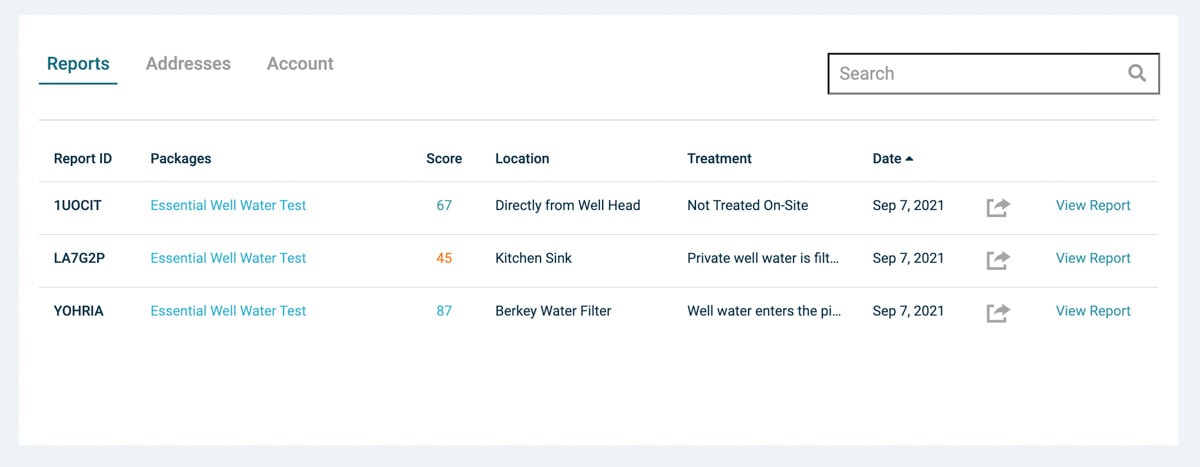
WELLHEAD RESULTS
So I logged onto SimpleLab, the Tap Score testing interface, where I got the testing results. First let’s look at the results from the Wellhead.
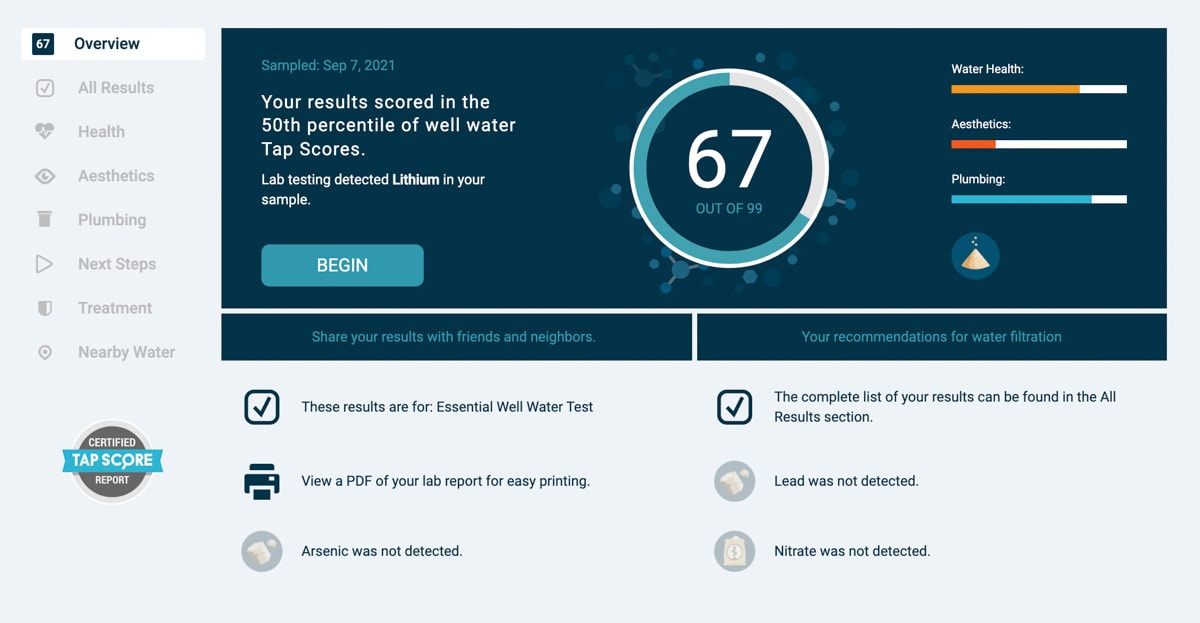
As an overview you can see that it scored 67 out of 99.
The plumbing scores pretty good, the aesthetics are poor – obviously because it smells terrible and stains everything yellow if we didn’t filter it.
The water health isn’t super great. The overview also clarifies that they detected elevated Lithium in our well water.
I love that they have an overview, but you can still dig further if you need more information.
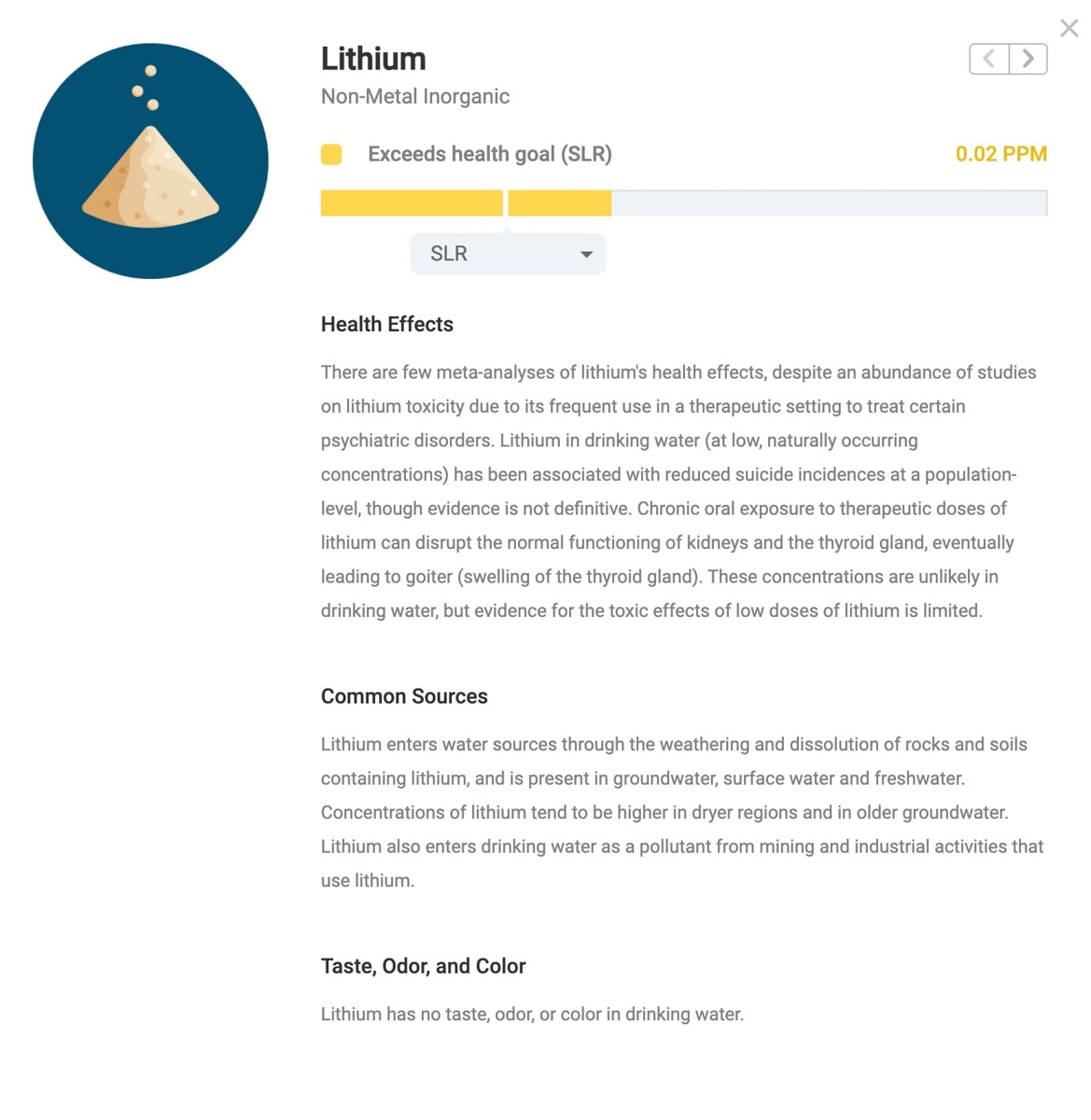
After reading more about Lithium, I felt like our levels were not too concerning, especially since we still had a filter to go through.
This kind of information is definitely something extra you get with Tap Score rather than using a basic test from your county or area.
I wouldn’t have a clue what healthy levels are or what most of these elements are, so these features are amazing to me.
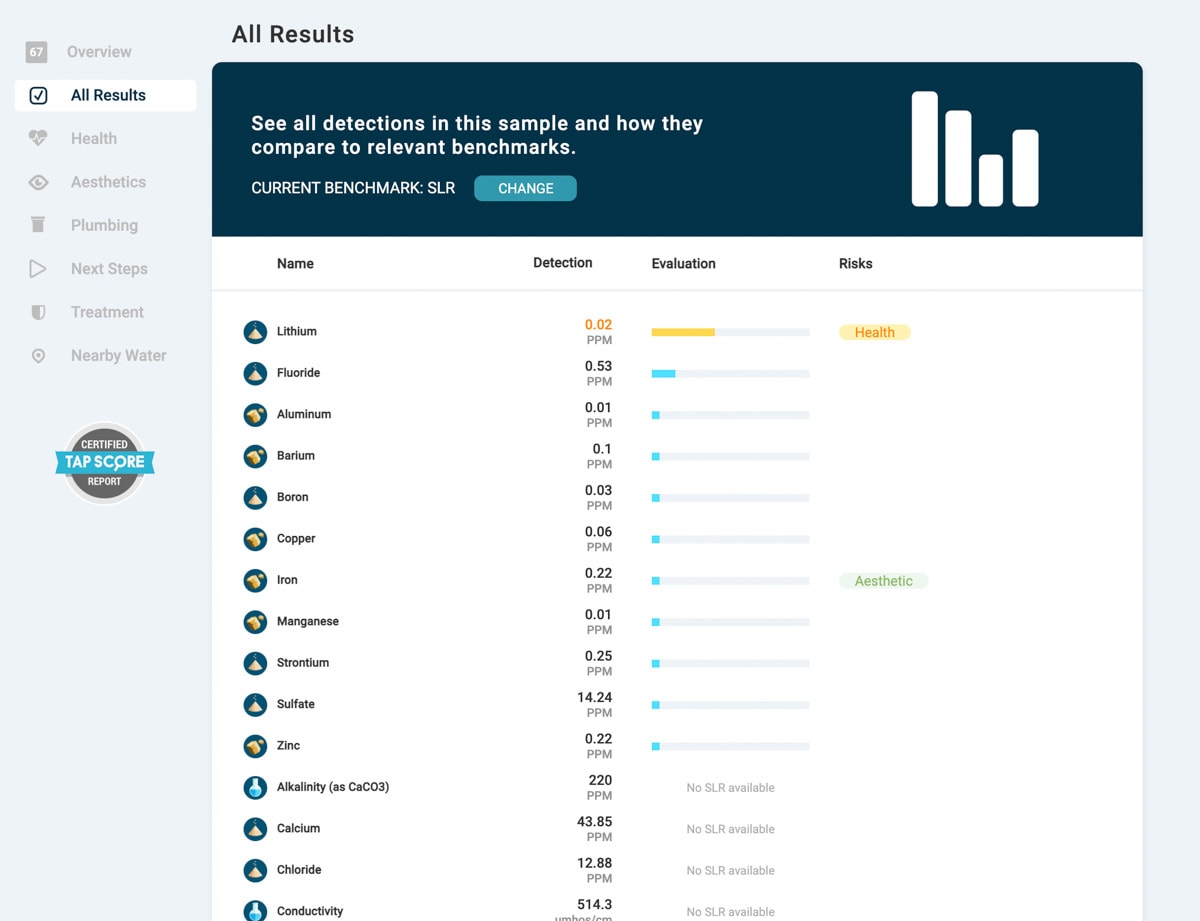
I can see how much fluoride is naturally in our tap water – and if your city adds extra you are concerned about, you could see the exact levels.
I can clearly see from the results that the Iron and Magnesium levels are elevated, affecting the taste and color.
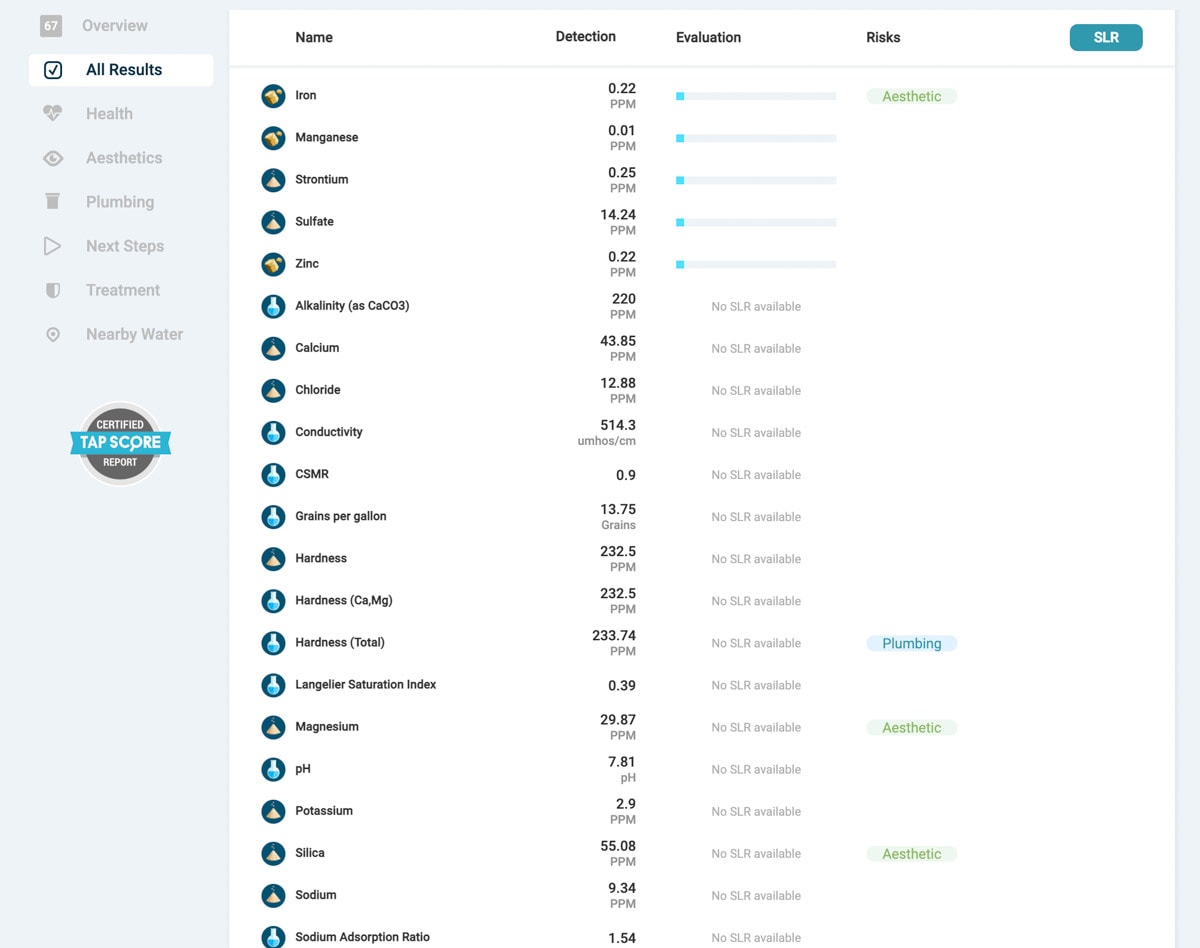
The hardness is ridiculously high in our well water, and would affect our plumbing and fixtures over time if not treated.
There are a lot of elements and info to digest here, but I was mostly concerned about E. coli and coliform, since they detected some when they drilled the well and we had to bleach the well and pipes for that.
This process is called “shocking a well”. I guess that is mainly why I was using the Berkey blindly, because I didn’t know if those were gone from our first treatment, so I just assumed it was better safe than sorry. It was great to see that those were not detected from the wellhead any more.
When I talked to Tap Score, they actually said my well water was pretty darn good in comparison to others.
Perhaps because it’s fairly new and perhaps because we are on 25 acres of virgin land – but it’s apparently pretty good levels.
Although, they still strongly recommended testing my private well once or twice a year because bacteria can return, and since our private water isn’t being monitored by any city or company, it’s kind of up to us to do so.
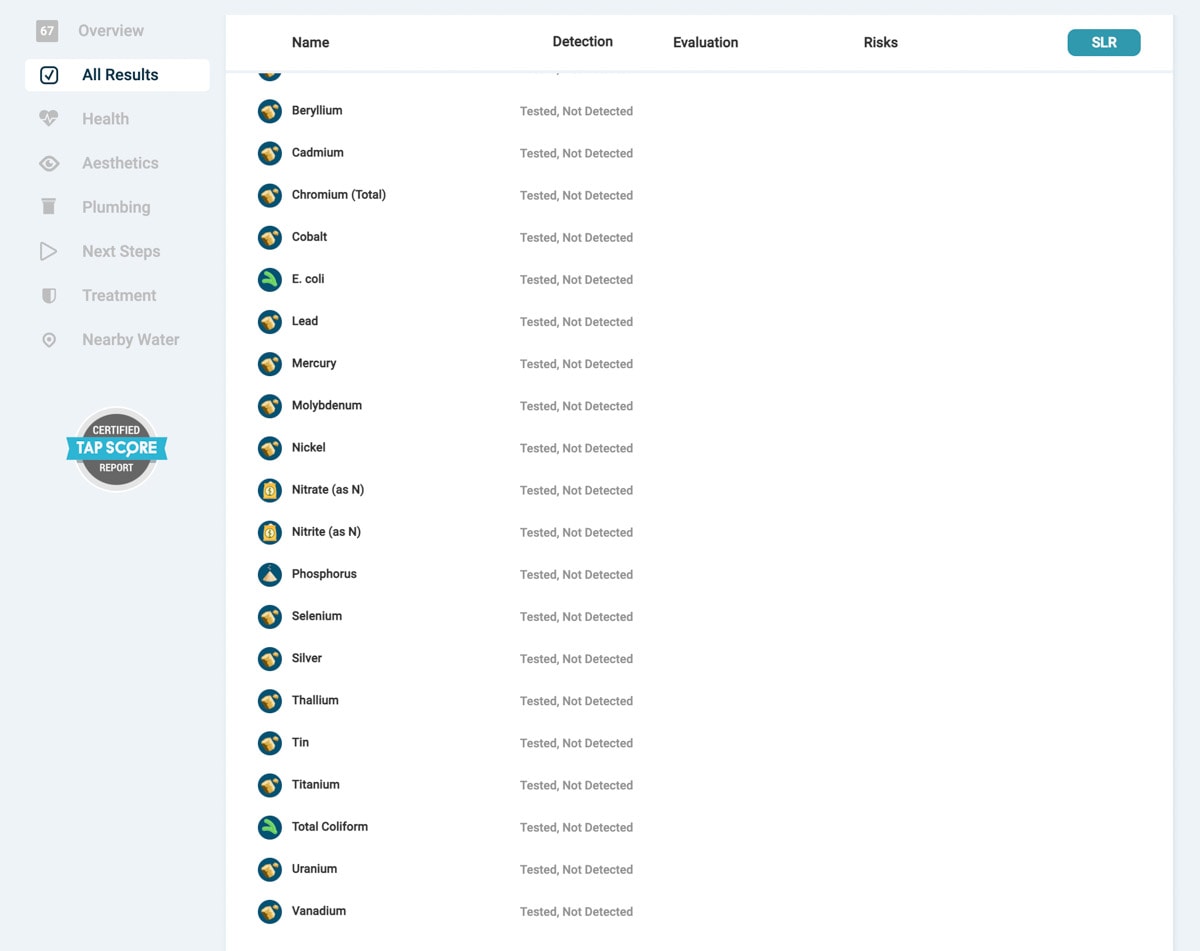
I want to show you one more cool feature inside SimpleLab, you can click on Treatment and it will recommend treatments based on your test results with potential cost.
It’s interesting that they recommend a reverse osmosis system here – but our local water guy led us to the green sand filtration. He said a reverse osmosis system would work, but was probably more than we needed – so let’s look and see if it works!
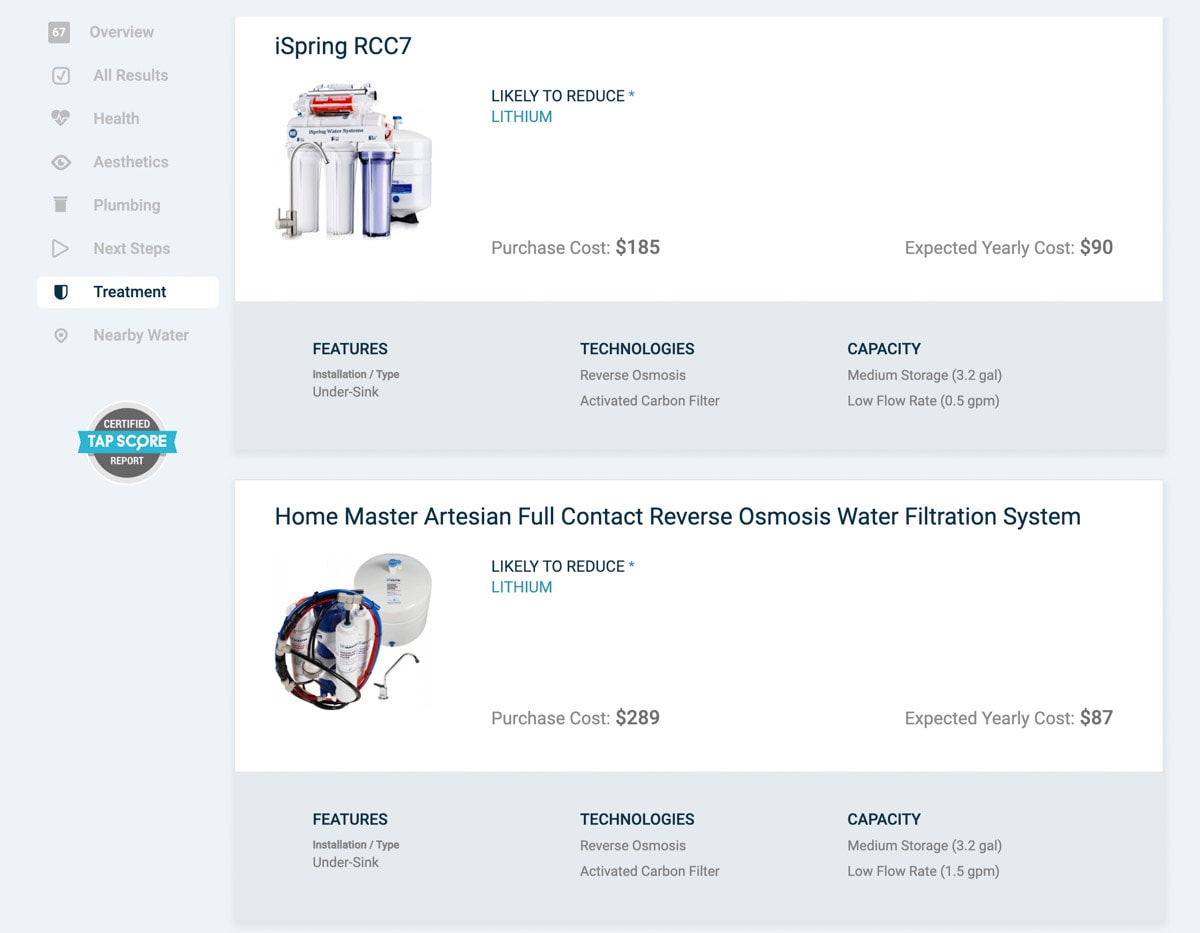
FAUCET RESULTS
Ok, here are the results for the water running out of the kitchen sink – which are extremely interesting.
The score is actually lower with a 45 out of 99. That was a little depressing to see, but they helped walk me through why this might be.
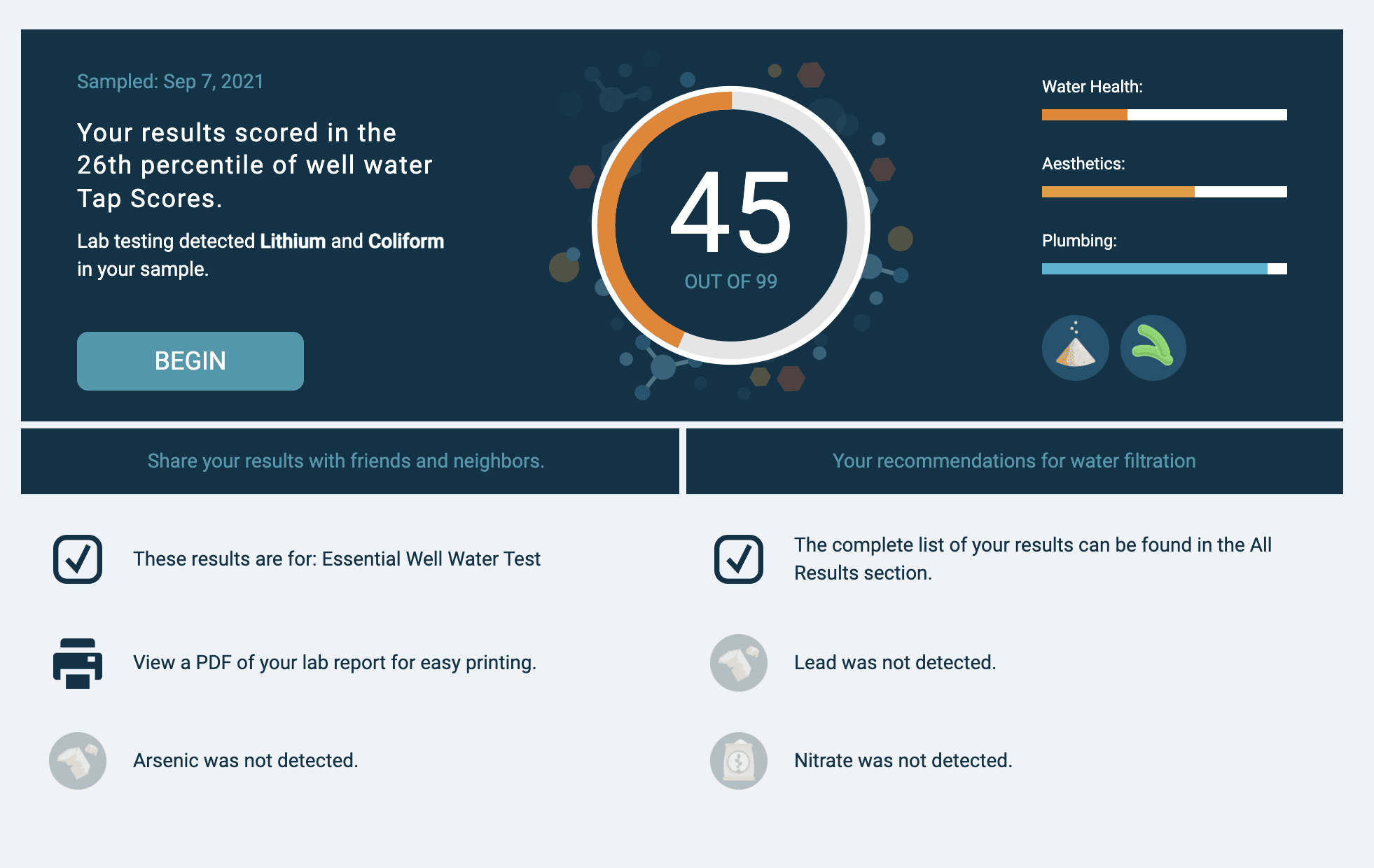
The levels I am particularly interested in to see if our green sand filter was doing its job was the iron and magnesium.
Iron wasn’t detected at all in the kitchen sink and magnesium went from a 29.87 PPM to a .09 – so that was very good to see. The green sand filter definitely helps.
I also wanted to know the hardness levels to see what the water softener was doing. The well levels were in the 200’s PPM and the kitchen sink test showed it down to around .6 – so huge improvement in hardness.
The softer water is much better for our skin, hair, plumbing – all of that.

The sodium is higher – due to the water softener, and I just don’t know if that is a concern or if my levels are concerning. That is some research I would like to do – if you know anything about sodium in water, let me know.
It seemed like all the levels really improved to the kitchen sink, so why such lower scores?
And it comes down to this little detection of coliform – which is a bacteria, and I clicked on it to learn a little more about it and spoke with my hubs and Tap Score.

We determined it could be detected because we had run water through the pipes and filtration system before we bleached the well.
So perhaps a little remains in the system and needs to flush itself out. Tap Score also said it could even be the result of bacteria built up on the faucet head – pretty harmless, but just detected.
They felt encouraged because it wasn’t in the well water, so whatever was causing the detection is most likely harmless and I think if we’ve been using this water for 2 years and haven’t gotten sick – I really don’t need to worry about it much in our situation.
E. coli wasn’t detected, so that was reassuring to know.
BERKEY RESULTS
Now finally – what happens to my water once it runs through my Berkey filters. Let’s take a look!
The overall score went to an 87 out of 99 – much higher than the sink and wellhead.
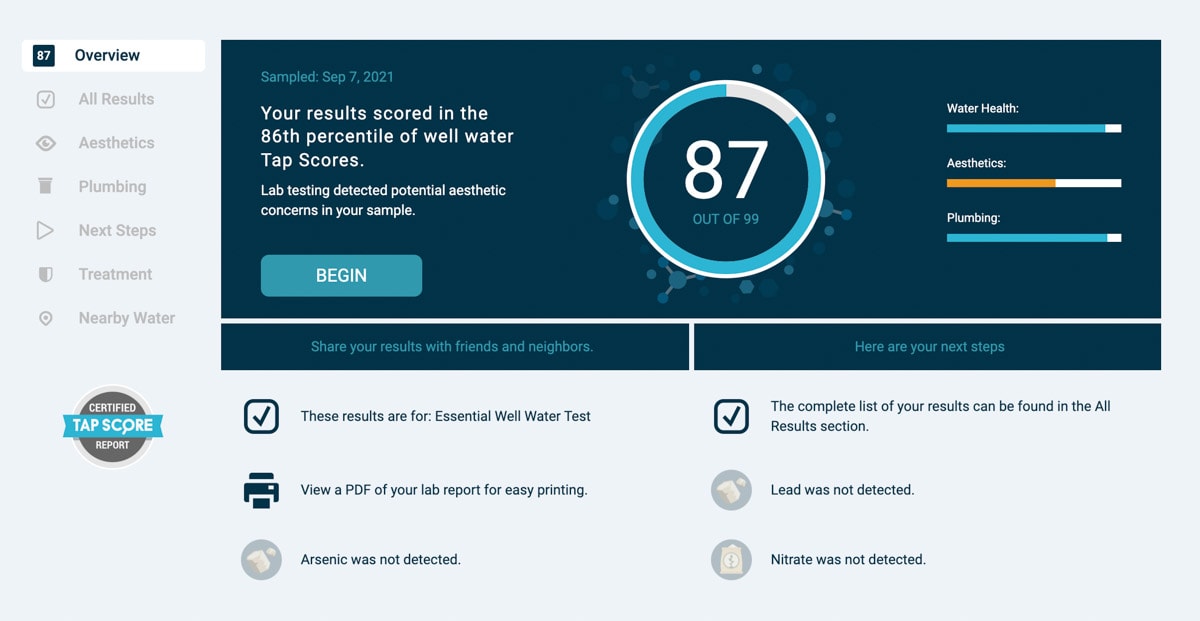
Lithium went from .03 to .01.
Fluoride is about the same because I don’t have fluoride filters on my Berkey, because we have well water and fluoride isn’t added.
Hardness went down a little bit even more from the kitchen sink from .6 to .3.
Magnesium from .09 to .03.
Does the Berkey Filter Remove Salt?
When looking at the sodium, it came in just slightly lower than the kitchen faucet. It doesn’t seem to filter much of the sodium – which is just good to know what the Berkey is capable of.
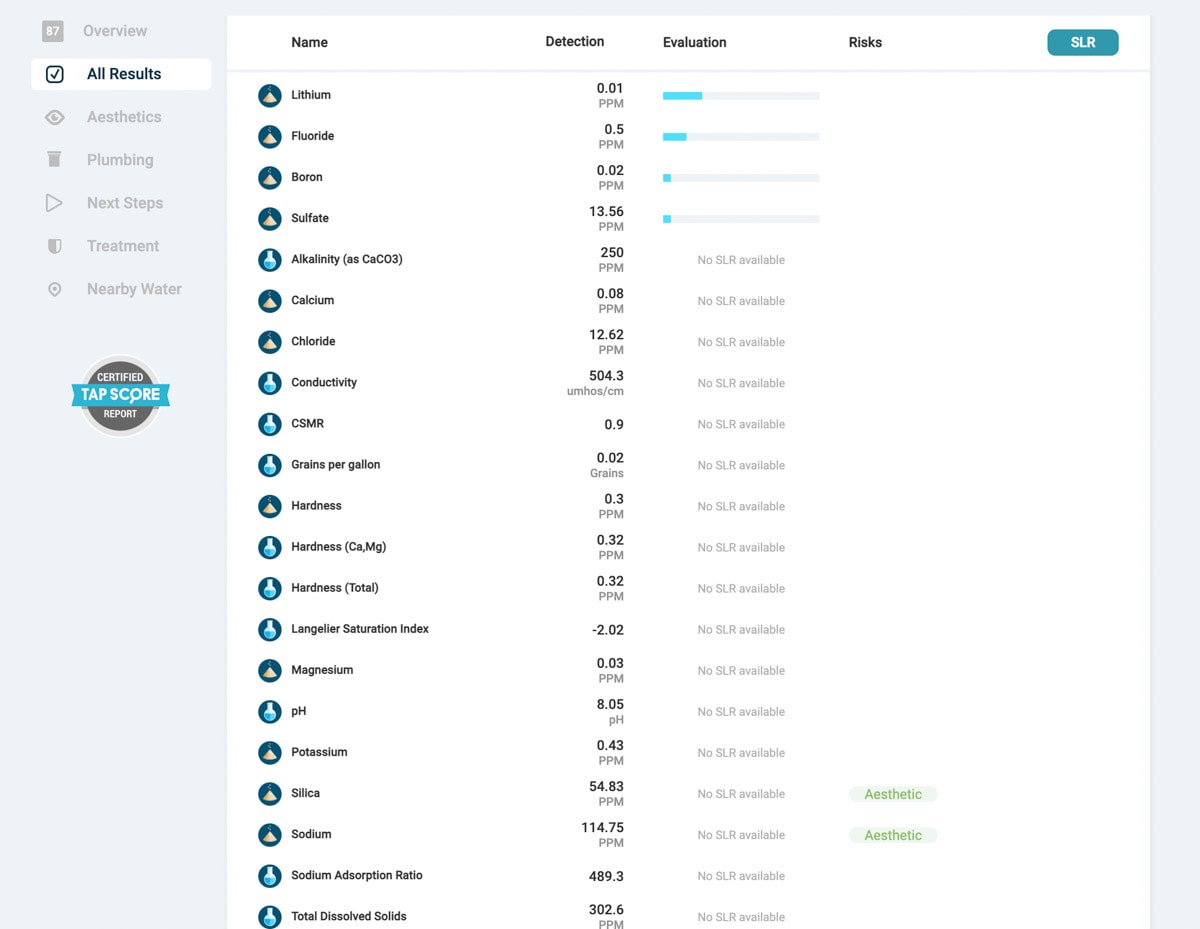
It was interesting to note that copper, iron, zinc – and other metals that were detected in the well and kitchen faucet – even though they appear to be in healthy levels – was not detected in the Berkey water.
Do we need a little bit of those in our water? Something I should learn.
But does the Berkey filter out heavy metals?
It appears so from my results. And you can look on the Berkey’s website and see what elements they claim to be able to filter out.

DOES THE BERKEY FILTER OUT COLIFORM?
I was definitely interested in Coliform from the Berkey, and the results say it was not detected here even though it was in the kitchen faucet.
In my experience, the Berkey does filter out coliform bacteria, which could be a sign of pathogenic bacteria. So glad that it works to eliminate that!

Comparing the aesthetics of the water tests
From the Berkey, the concern was that it might taste salty because of the sodium levels. We don’t notice it. It also looks like there is some remaining Silca which can effect the color. Again, it must be very low because we don’t notice it.
From the well, the taste was marked with Iron, Magnesium and Silca concerns.
From the kitchen sink, aesthetics showed that sodium and coliform may affect the taste and smell.
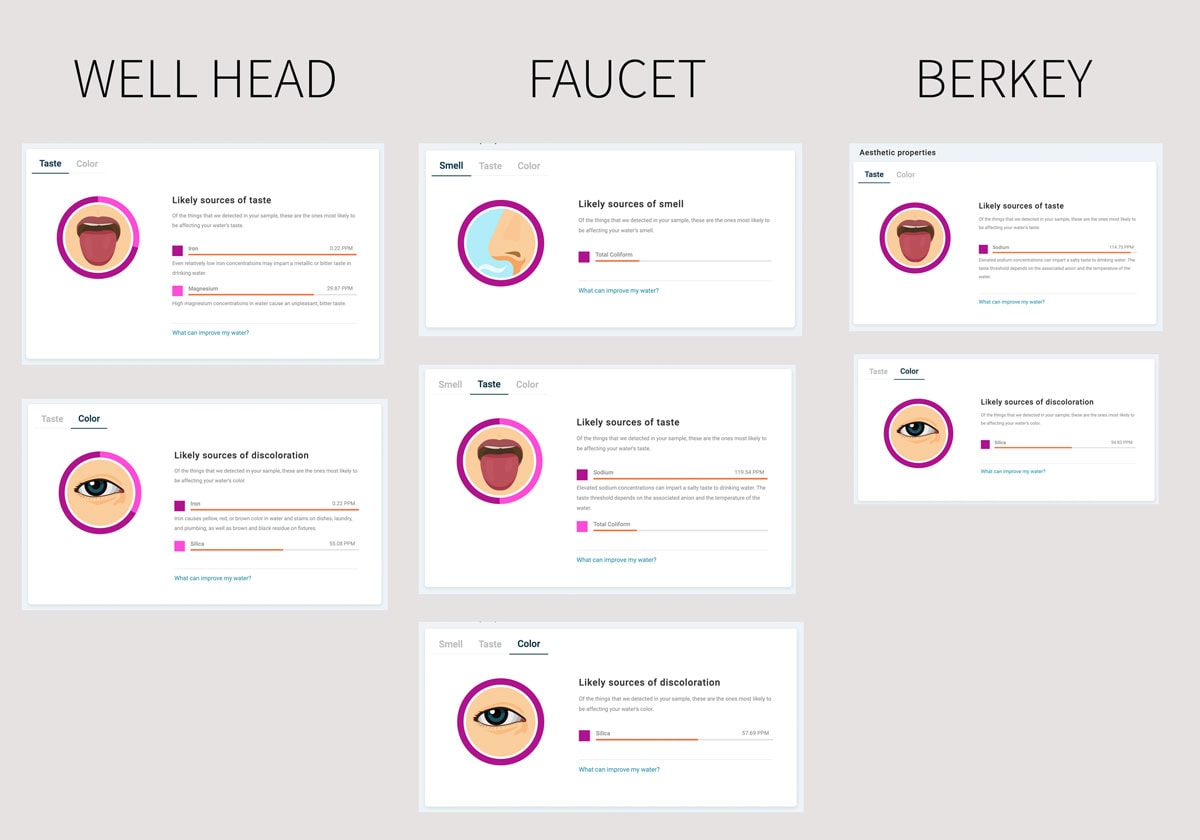
Is the Berkey Water Filter worth it?
Would I still recommend it after testing?
Knowing what I now know, is the Berkey worth buying and do I still recommend it?
This is what I now recommend with my whole heart . . . test your water!
Find out and see what kind of health concerns are in your water and then go from there.
You may not need a filter if your water comes back with healthy levels. Or you may find you need a much more robust whole house filter, like ourselves.
Tap Score could save you a lot of money buying doing this test first, and it may actually help you find the right solution to healthier water.
Or maybe you have city water and you get it tested and it detects high levels of VOC’s, chlorine, fluoride – all stuff we don’t want to be drinking in high dosage and your only choice is to get a countertop, faucet or fridge filter.
So basically, I am saying, before you just jump to buy any filter, know what your situation is first and then start researching what exactly you need filtered out and what that filter will do.
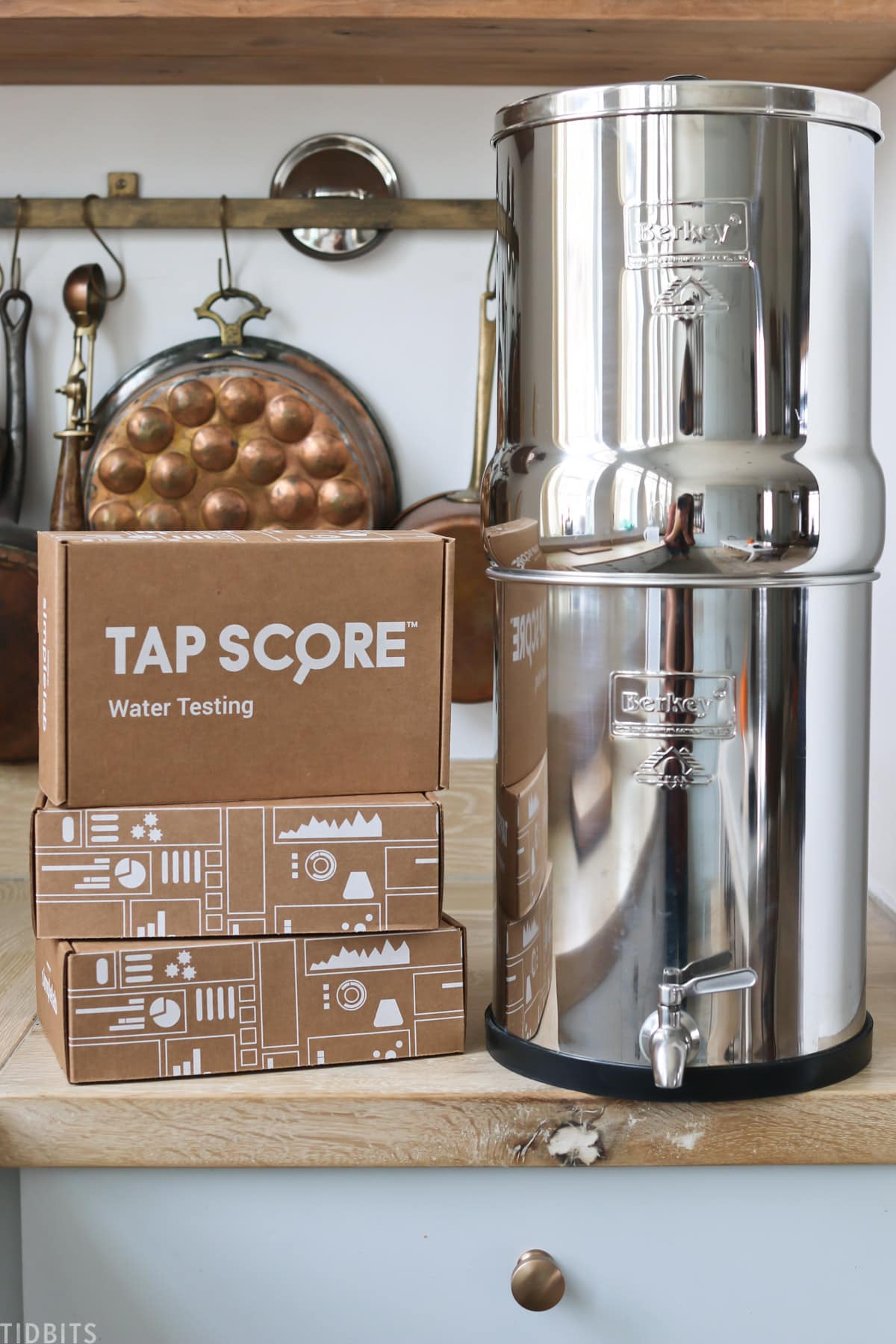
Why I Still Recommend the Berkey Water Filter
That being said – based on my experience – I still highly recommend the Berkey.
- I got it first when we were on city water. I didn’t know I should test and see what was in our water, but I knew it was often cloudy and tasted terrible. The Berkey 100% improved the taste then, and we all still now prefer the clean yummy taste from the Berkey versus our sink.
- I can see that it successfully took out any detection of Coliform, but I also don’t worry any more if my kids drink out of the faucet on occasion and I don’t mind cooking with our sink water now knowing what is and isn’t in it.
- I still like how the Berkey looks, it makes water drinking more appealing and convenient. It’s kind of like having a drinking fountain in the house.
- I love room temperature water, I feel we all drink more water because of it.
- Considering emergency preparedness – I feel pretty good trusting the Berkey would take out harmful elements if our water source was tainted or if we had to drink from the stream or something.
- All the reasons I listed in my Berkey Water Filter review video are sill relevant and true for me!
So all this – it is still a win for me!
Overall, knowing is half the battle. Figure out what is in your water – and go from there.
Don’t spend money needlessly, be informed, and maybe even test your water after you choose to filter it with any filter.
If it doesn’t do what the company says it does – ask for a refund with your testing proof. I think that might be a good approach rather than getting lost in skeptical internet articles and comments.
WHERE TO BUY A BERKEY WATER FILTER
I recommend you buy directly from Berkey so you can get their help if something doesn’t work right. I have a Royal Berkey size for my family of 6, and it is perfect. You can use the coupon code “TIDBITS” to save 5% off your purchase on anything from Berkey.
Let me know if this was helpful for you!
While you’re here, you may also like to check out these articles!
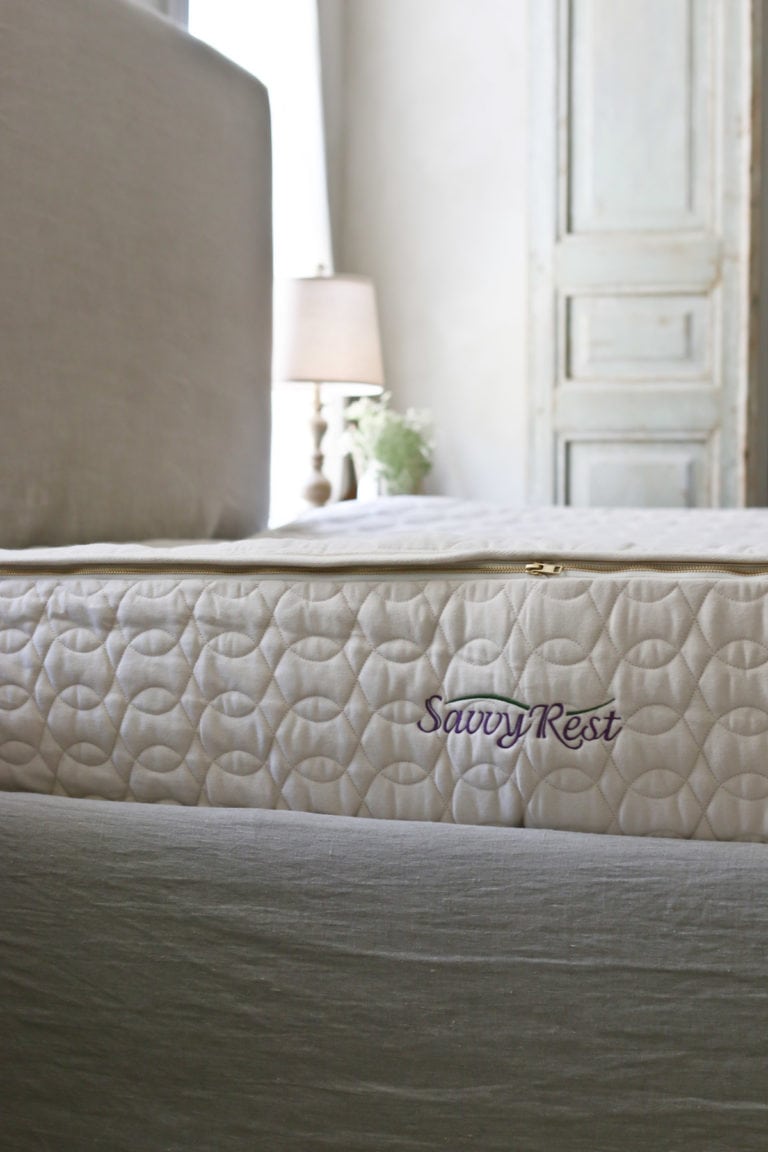

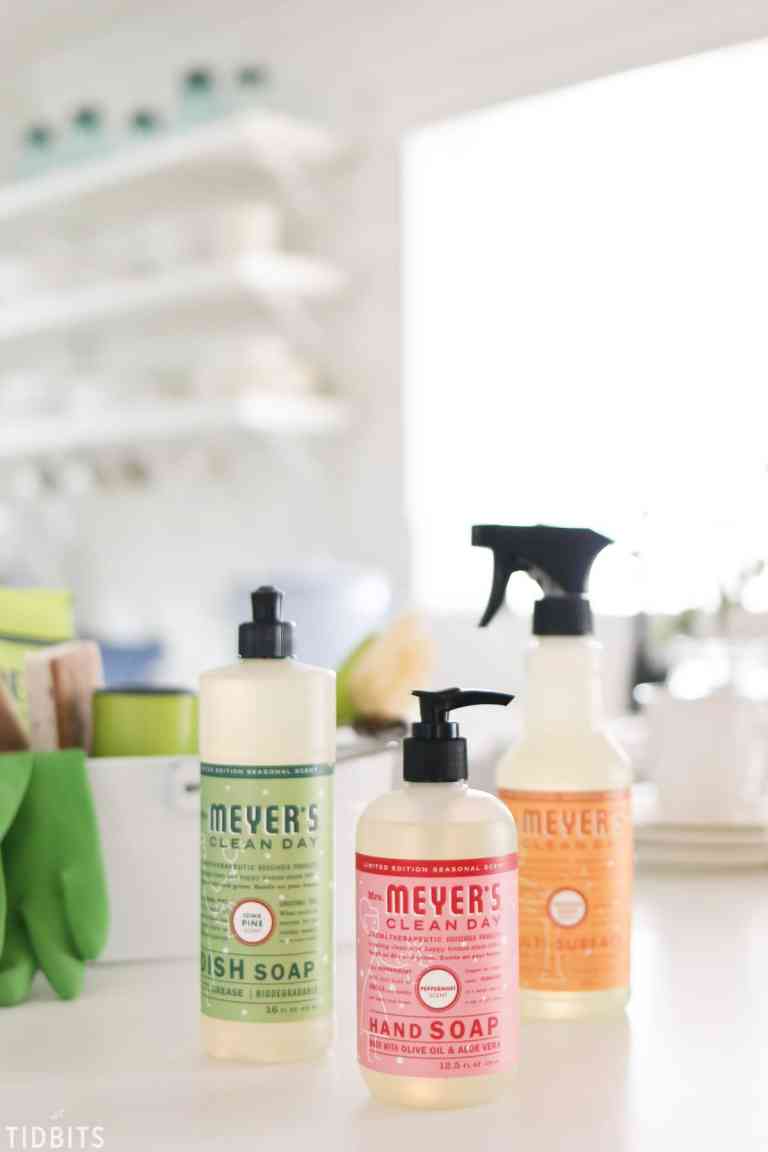
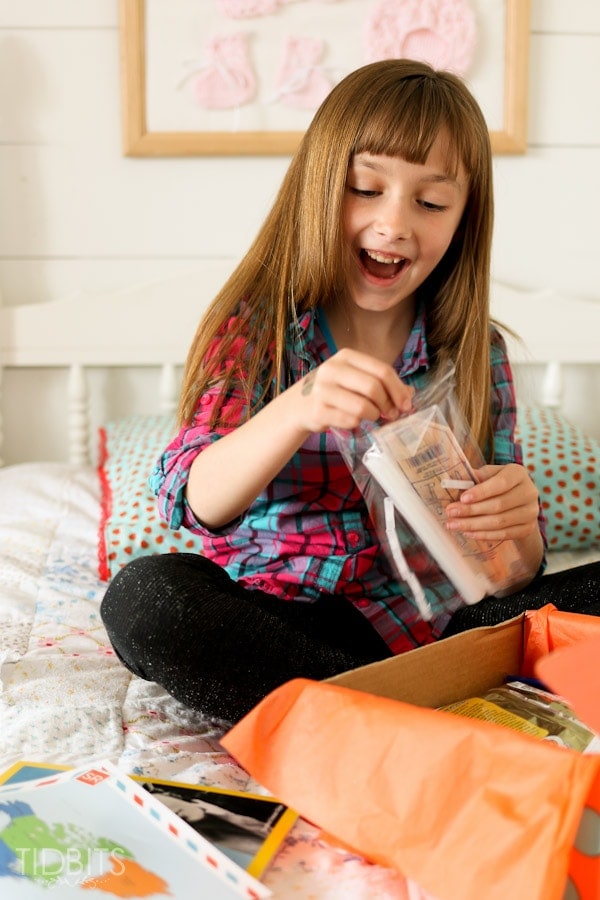
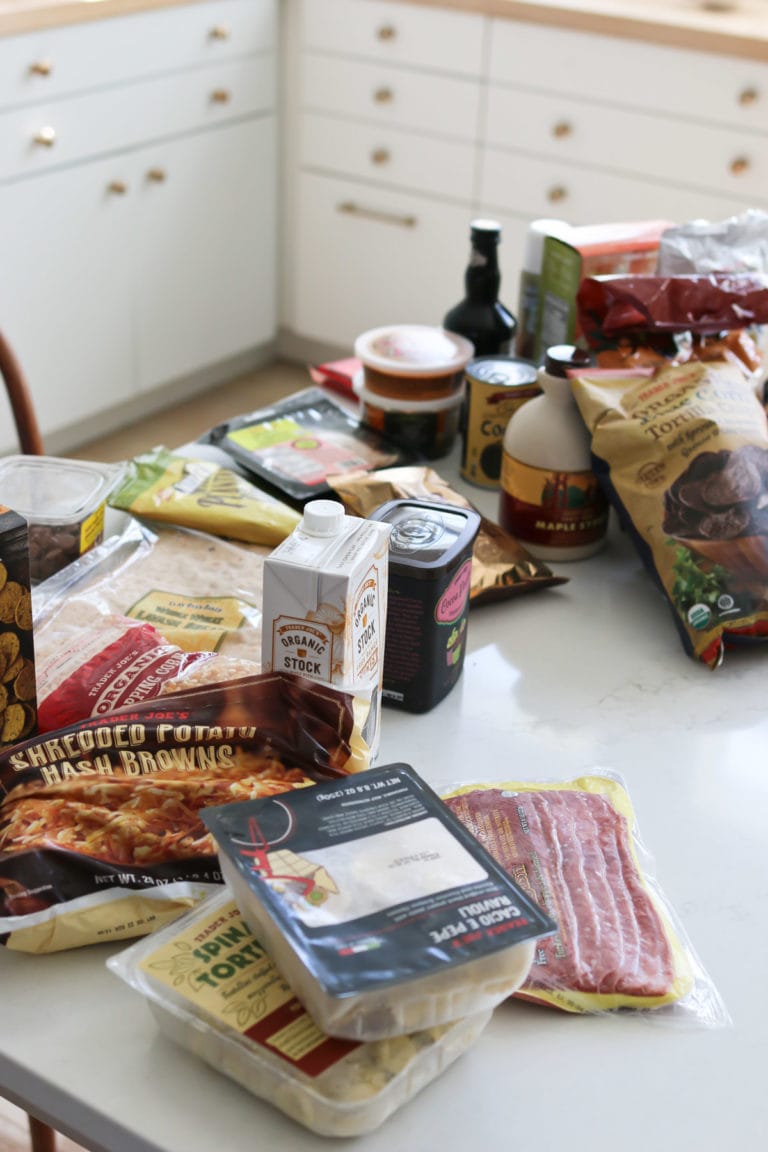
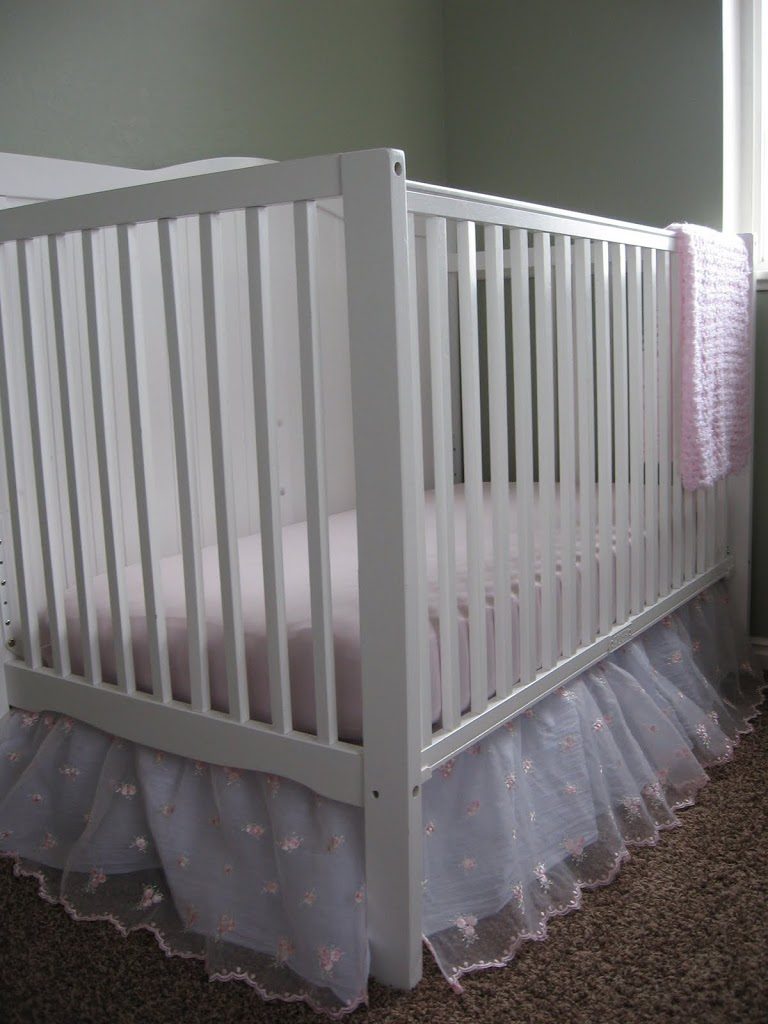







where to buy berkey filter now???
an
I have had a Berkey for about three years now, and wholly agree with your comments and results. Thanks for doing the legwork on this. Your video was concise, thorough, and informative. When I have to defend my purchase of a Berkey, I will send people to your site. Best review I’ve seen. I agree with your findings because they have proven true in our situation as well. My wife and I will never give up our Berkey just for a great, all-around water purifier. It’s not perfect, what is? But it is definitely a great system.
We travel allot in our Trailer and the water we encountered was terrible almost anywhere we camped. Much of it was making us sick. We had to get a Berkey filter just so we could stand to drink water on the road. I am happy to report that our water has consistently been very high quality no matter what water we fed to the Berkey filter. So Berkey is a good solution for those that travel and has greatly improved our water drinking experience.
Hello! I’m looking into getting a Berkey. I saw the numbers for the aluminum tested in both the well water sample and the faucet sample, but the picture cut off that line for the Berkey sample. Could you share that please? (You can even email it to me. rachelware7@yahoo.com) I’m trying to get a Berkey, but read an article about aluminum leaching from them. I’d rather not buy a Berkey just to pay to run a test myself if I can find others with that helpful information.
Thanks for your help. ❤
I believe that aluminum leaching comes from the fluoride fliters, but its actually alumina which doesnt get absorbed much by the body. Still should do your research first.
Thank you! Excellent article. I really appreciate all the work you did, and the sharing of your documentation.
I would love to see you run a test with ProOne filters in the Berkey. They claim to work with the Berkey canisters and they also claim to remove more fluoride without the need of extra fluoride filters. Berkey told me their black filters can only remove fluoride for the first 100 gallons. I’ve read that the extra fluoride filters from Berkey put aluminum into your filtered water. The ProOne filters don’t do that – they are ceramic and to top it off the ProOne filters are infused with silver to kill bacteria/viruses. I’m thinking about switching my Berkey black filters to 4 x 9″ ProOne filters once they are ready to be replaced.
Hi there,
I want to thank you for your blog & video on this. I am still having hesitation as I switched from a Zero Water Pitcher to a Berkey. I’m still waiting on my fluoride filters as I’m on city water. I tested my water using the TSD (total dissolved solids) meter. And it oddly tests the berkey water higher than my tap, my Zero Water Pitcher water and even higher than the berkey water filtered thru the Zero Water pitcher too.
Berkey says it’s because the TDS meter leaves beneficial minerals in then when I ask why it added to the numbers this was the response.
“ One of the things the TDS meter does is measure the conductivity (positive or negative charge) of the water. One method utilized by the Berkey to remove contaminants is ionic-adsorption, and this will naturally result in a slightly more positive charge. Translated, this will cause the meters to show a higher TDS reading when in reality nothing has been added to the water. In essence, it proves that the filter is working.”
I’m curious if you seen anyone comparing the two systems?
I still a bit hesitant but did go ahead and order the fluoride filters since they were back in stock.
Just asking if anyone out there saw the same or tested those two side by side?
Thank you for sharing your interest and experience with internet-land. I had interest in your experience and article. Looking closer at your procedures, I am not sure that the results are quite scientifically accurate for best comparative value for those looking for a real comparison of performance as myself. First, you don’t disclose how long you Berkey filters had been used for when you drew your sample. From images, it does look as though you are drawing water from relatively new, if not brand new filters, Of course scores are going to look “good” with a new or nearly new set of filters installed, although personally, I would expect a higher score for such an expensive filtration system as I suspect you are drawing water from your faucet filtered green sand system to fill your Berkey, so it’s been filtered once already before going through the Berkey (Essentially being filtered 2x from the well) Additionally, Filter quality degrades over time and High quality testing of a filter system would look at how well a filter is filtering at mid point and closer to end-of-life and the number of gallons passed through and tested is part of the testing procedure… not just a small sample at the fresh beginning of a new set of filters using already filtered water from another house system. Can I suggest an update to this by taking water directly from the well source and running it through your Berkey filers as they approach end-of-life and then have the water tested and report back to your readers?
Hi there,
Thanks for doing this and the time to lay it out for us! I also came across this company today after buying a berkey as I realized I needed some additional information. I asked a few questions and got very generic answers, and short of paying to do the water tests myself wanted to see what independent tests I could find already out there.
What did interest me – chloride (not chlorine) was 12.88 in your well water, 12.13 in faucet and then 12.62 after the berkey. I don’t know if that is considered an acceptable deviation due to the lab results but I can’t understand how the berkey filter is adding chloride to the water!? – albiet in very low quantities from these comparisons. As I read someone mention above, it is a pity you didn’t do a 4th test of just the well water straight into the berkey filter, that would have provided a deeper level of raw data.
Pity there also isn’t any data of CHLORINE… berkey website does say the filter removes >99.9%
I noticed TAP SCORE have a mould and fungus test that list 30 off things that are not listed in the berky organic test results on their website. So I enquired to berkey support..
Berkey support said quite simply “If it is not listed, it has not been tested and we cannot guarantee it would be removed. Due to that, I could not advise if those items would be removed.
They also said: “Bekefi wrote: We do not take out the minerals while filtering.” However, while calcium, magnesium and potasium were still present it showed slightly lower readings. This is why I would have been interested to see the raw difference with the well water put directly into the berkey.
Thanks again 😀
To be clear, the very generic answers were from Berkey support. They were not very helpful but understandable from a legal perspective. I did however find the support from TAP SCORE very good! I am however in Costa Rica so unable to use their services unfortunately.
Thanks again! 😀
Hello ! Thanks for your research. 🙂
What water did you put for the Berkey testing? Is it the water that is coming directly from the well, or is it the water that went out from your house process filtration? (the water from your second testing?)
I’m asking that because I’m not sure of my understanding, I notice that in your second test, heavy metals were not detectable, so if it’s this water it should be normal that it’s not detectable in your third test.
Thanks a lot for your help. 🙂 (sorry for my bad english, i’m french lol)
Hello Cami! Thanks for your research. 🙂
What water did you put for the Berkey testing? Is it the water that is coming directly from the well, or is it the water that went out from your house process filtration? (the water from your second testing?)
I’m asking that because I’m not sure of my understanding, I notice that in your second test, heavy metals were not detectable, so if it’s this water it should be normal that it’s not detectable in your third test.
Thanks a lot for your help. 🙂 (sorry for my bad english, i’m french lol)
It’s too bad good minerals like magnesium get filtered out, but I guess it’s unavoidable. Thanks for your in depth analysis.
Hi! Thanks for the info. Any advice on what to do if your berkey tests positive for bacteria.
Thanks for your time!
Oh dear! I would contact Berkey first and foremost to see what they say.
What a great study you did! Thank you for sharing the results. FYI Berkey recommends if you have a water softener to use UNsoftened water for their filtration systems. (I have a Berkey, insanely hard water and a water softener too). I get periodic emails from them on tips and one of the articles was about this. With mine I could really still taste the salt when I was using the softened water but since I followed their instructions it’s much better. I was concerned with the insanely hard water (which set a record for hardness with the plumber who tested it) the filters wouldn’t last very long but it hasn’t been an issue at all. It’s a bit of a pain to go downstairs and shut off water flow to the softener each time I fill my Berkey but worth it.
Thank you so much for this video…like you I bought my berky without more research on what we might need. Blind trust I guess…I recently saw a blog that was very negative about the transparency of berky and have been discouraged and worried I completely wasted our money…the article I read said that the filters leach aluminum oxide? I use only the black filters and have no idea if the black filters are the cause or the added fluoride ones leach the aluminum oxide? On your test results do Tap Score test for aluminum or aluminum oxide? I didn’t see that from your pictures! Thank you for your time!
It’s the fluoride/arsenic filters that are possibly of concern re: aluminum oxide. The white ones, not the black ones. Apparently, most of the fluoride filters out there use this material. I saw a review of Clearly Filtered, and it was the only one that did not use aluminum oxide. I’m nervous about this, too, but I will say I’ve been drinking Berkey water for 6 years without problems (with the added fluoride filters). Tap water makes me almost instantly sick due to chemical sensitivities, but I haven’t gotten sick from the Berkey water. Still troubling and needs more research, though, agreed. If you are just using the black filters, you should be fine.
Thanks for this helpful comment!
Outstanding article, thank you very enlightening. My family has been drinking from our Berkey for 8 years and I admit I did my homework but never actually really had proof that the Berkey was actually doing what it claimed to do! We new the Berkey definitely improved our water as we can smell bleach in our tap water eeeek! This is completely removed with the Berkey and our filtered water is super delicious. Thank you.
Thank you for this thorough post, interesting. What I did find a little unsettling though is that the Berkey filtered out the good minerals it says that it doesn’t- calcium, magnesium, potassium, except for the sodium as you said. 🤔 It would interesting to know why that is.
Wow… what a comprehensive look at filtration, something I have always been interested in and concerned about. Thank you for taking the time to do this post and doing your due diligence. I know the Berkey filters out chloride very well when you install those filters, something that any discerning parent should understand. I’m happy with my Berkey and am grateful for their myriad affordable options.
Hi Cami
I truly appreciate this blog. My husband and I were just talking about what if not our Berkey really did what it’s said to do. Something you might want to look into…I heard your not supposed to run softened water through the Berkey because it will ruin the filters. So we have a second smaller faucet on our sink, that is attached to our plumbing after the iron filter but before the softener. It was easy to install and that’s what we use to fill our Berkey. Hope this info is beneficial to you. Have a great day! Thanks again for your post! 🙂
Hi Tonya,
I know this was an older post, but I’m curious as to the brand you mentioned in your post, the second smaller faucet to filter the soft water. Please let me know as we have Berkey and a water softener too, but so far have just been cleaning the filters more often.
Thanks, Cami. This was very informative. It’s good to know what we are putting in our bodies and we often don’t think of our water as we tend to trust our wate company. I am now curious about ours…I will be checking out Tap Score and going from there. Appreciate you!
Cecilia